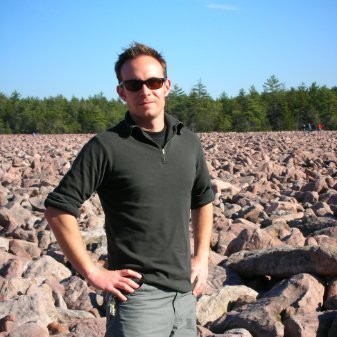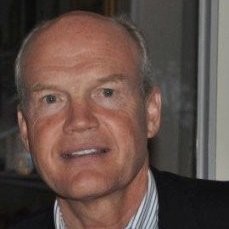Groundwater Modeling for the Site Professional – Fundamentals and Applications
Date and Time: Wed, March 24, 2021, 12:30 PM - 4:30 PM
Location: GoToWebinar
Presenters:
- Mark Kauffman, Manager, McLane Environmental, LLC
- Charles F. McLane III, Principal, McLane Environmental, LLC
- Cynthia Kanno, Associate, McLane Environmental, LLC
Continuing Education Credits:
NOTE: This is the first time this course is being offered by EPOC. The course has been previously offered in MA by the LSPA. The CT State Board of Examiners of Environmental Professionals (LEP Board) has approved this course/webinar for 4.0 hours of continuing education credits (CTLEP-516W).
Fees:
- EPOC Members: $150
- Non-members: $250 (consider joining EPOC at this time to receive the member rate for this program)
- Gov't Employee/Students: $75
Course Description:
This half-day is intended to familiarize site professionals with fundamental concepts and practical applications of groundwater and soil zone modeling. Modeling analyses can be utilized to guide site investigation activities, provide a quantitative basis for Conceptual Site Models, and support remedial decision making. Accordingly, it is important for environmental professionals charged with overseeing site investigation and remediation activities to understand key modeling terms and concepts, how modeling can best be applied at their sites, and how to critically review and interpret results of modeling analyses.
The first half of the webinar will include an overview of the many uses of computer models in groundwater and environmental projects, with an emphasis on analyses performed to support site investigation and remediation. Attendees will also be familiarized with the modeling process, from model conceptualization and software selection, to model development and application, and finally, preparation of the model report. Examples will be provided from modeling projects and reports to illustrate proper application of the modeling process. Finally, a case study will be presented which highlights the use of a groundwater model to support site investigation and remediation activities.
The second half or the webinar will begin with a discussion of soil zone modeling software, and a series of practical examples demonstrating how those software can be used to guide site investigation and remediation activities, including analyses to minimize areas requiring soil excavation. An overview of groundwater flow and transport programs and other modeling tools, including MODFLOW, Analytic Element Method (AEM) models, and other publicly available modeling software, will also be presented. Finally, a step-wise modeling exercise will be presented, which walks through the model development process by starting with relatively simple tools and analyses, and building complexity until the desired level of accuracy and confidence in model results is achieved, and project objectives are met.
This course requires no previous modeling experience, and will appeal to environmental professionals, regulators, and others responsible for implementing and overseeing environmental investigation and remediation activities where groundwater or soil zone modeling has been (or could be) utilized. In addition to instruction detailed above, attendees will also be provided with additional materials, including selected modeling software and guidance documents, self-paced groundwater modeling training exercises, and a reading list containing references to useful modeling publications and resources.
Course Agenda:
1. Introduction - Course Overview
2. Uses of Groundwater Modeling - How it can benefit a project
- Applications of models for Water Supply, Wastewater, and Hydrologic Impacts (w WWTP Case Study)
- Applications of models for Quarry Projects (w Case Study)
- Applications of models for Landfills and Wastewater (w Nitrogen Loading Case Study)
- Applications of modeling for Site Investigation and Remediation (w Trench Analysis Case Study)
3. The Modeling Process - What to know and watch out for
- Including a model and directing the groundwater modeling portion of a project - Overarching Concepts
- Best practice Steps for Environmental Project Models (conceptualization; software selection)
- Steps in the Modeling Process (model development; grid design)
- Steps in the Modeling Process (boundary conditions; property zonation; calibration; application)
- Steps in the Modeling Process (uncertainty analysis, QA; model report & related standards)
4. Case Study
5. Q&A Session
6. Soil Zone Modeling & SESOIL
- Overview of Vadose Zone Modeling Software
- Example Applications of Vadose Zone Software
7. Overview of Groundwater Modeling Software
- Discussion of modeling software, including MODFLOW, AEM Models, and other modeling tools
8. Step-Wise Model Building Exercise
- Introduction to Exercise
- Stepwise Model Development & Discussion
9. Final Wrap-up & Discussion
Presenters Bios:
Mark Kauffman

Mr. Kauffman is a Manager at McLane Environmental with special expertise in hydrogeologic site investigations, analysis and interpretation of complex geospatial data, environmental forensic techniques, and ground water modeling. Mr. Kauffman has applied these techniques to interpret complex site data, and provide consulting support for projects including site engineering, regulatory compliance, and litigation support. Mr. Kauffman has managed and consulted on a number of projects, including visualization and analysis of site data to help guide remedial actions at DoD facilities; review of engineering plans for a proposed quarry site; water supply well field siting and permitting projects; ground water modeling projects to evaluate the fate and transport of contaminants; and matters involving insurance litigation, CERCLA cost allocation and Natural Resource Damages. Mr. Kauffman received his B.S. degree in Environmental Studies from Temple University, and has completed graduate work and has participated in continuing professional education on a variety of topics, including groundwater modeling, environmental forensics, and environmental regulations.
Charles F. McLane III

Dr. Charles McLane is a Principal with McLane Environmental LLC in Princeton NJ where he specializes in quantitative hydrogeology, groundwater modeling, and chemical fate and transport in subsurface hydrologic systems for projects that include water resource evaluation and water supply permitting; wastewater management and disposal; conceptual site model development; and design and evaluation of groundwater remediation and hydraulic control systems. He has led short courses and training workshops for USEPA, National Ground Water Association, and other professional organizations. Dr. McLane holds a B.A. in Geology from Susquehanna University; an M.S. in Geology from the Earth Resources Department of Colorado State University, with a focus on watershed hydrologic processes; and a Ph.D. in Environmental Sciences from the University of Virginia, with a focus on hydrogeology and computer simulation techniques.
Cynthia Kanno

Cynthia Kanno is an Associate with McLane Environmental LLC in Princeton, New Jersey. Her areas of specialty include hydrogeology, groundwater flow and contaminant fate and transport modeling, and environmental data analysis. Ms. Kanno has provided consulting and litigation support for a variety of projects including evaluating groundwater capture zones and impacts to surface water features in support of new water source permitting activities; performing contaminant transport modeling analyses to evaluate timing of groundwater impacts; and reviewing site investigations and data to assist with developing allocations for environmental liability. Ms. Kanno received a B.A. degree in Geosciences from Princeton University and an M.S. degree in Environmental Engineering Science from Colorado School of Mines, with a focus on hydrogeology and vadose zone modeling.